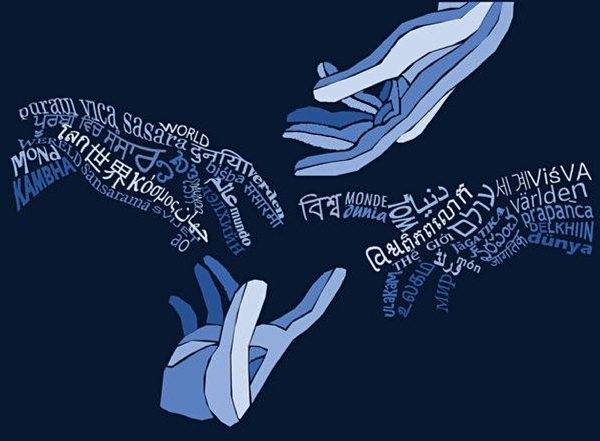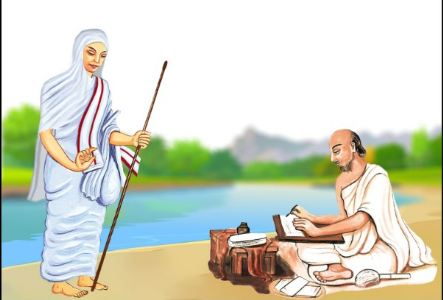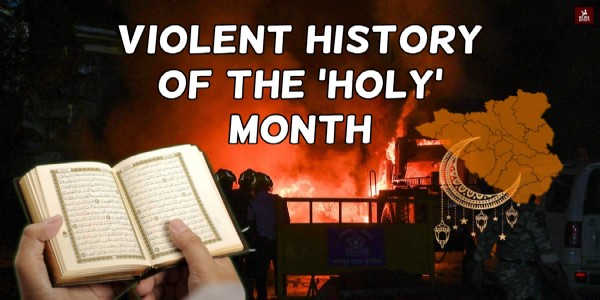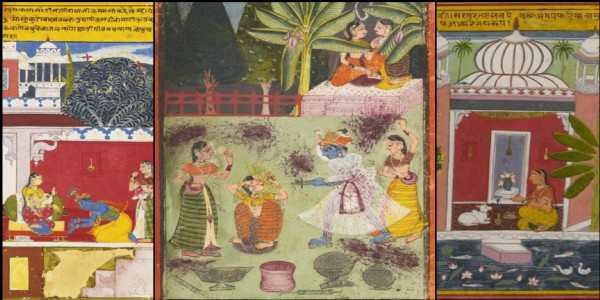"From 'Prasad' to Identity": Celebrating Diversity in the Multilingual nation of Bharat
Remembering this distinctiveness and simultaneously, respecting each of these individualities is the underlying principle of multilingual society. Unquestionably, India is a multilingual society.
Total Views | 848
How do you say “Prasad” in English? asked the security guard at my hostel one day. She wanted to explain it to the foreign-exchange student. This question is representative of multiple other terms that we cannot accurately translate. Of course, the next few minutes were spent on explaining the phenomenon of prasad to the foreign exchange student. However, there is another side to this.
I am a Tamilian living in a hostel in Gujarat and I understand the term, Prasad. The term is not the same in all spoken languages definitely and there are available in lexical variations but there is a contextual usage dependent on our culture. The term will be meaningless without the cultural association. This association can be understood by the two people situated in two different corners of India. And this can be recognised as multilingualism and cultural diversity as celebrated on the eve of International Mother Language Day. UNESCO observes International Mother Language Day on February 21 annually.

Mother language is the first language learned by the child within the setup of home and family. It is learned beyond the formal structures of education such as schools. Recently, mother language is being promoted for formal education for the children. The underlying idea is that the mother language is the language of nurturing and it aids in making sense of the worldly experiences and make meaning in one’s lives, extending to our sensibilities of climate, flora, fauna and human behaviour, and similarly, prasad. It could merely be dependent on the caretakers of the children. Equally prominent is the understanding of Mother language as dependent on Mother land. We, as social beings, can fall anywhere on this spectrum of identities formed based on languages spoken.
A predominant understanding is that languages are learnt for communication. However, beyond the interpersonal interactions, there is also intercultural communication. Neither language nor culture exist independently. Let us see our daily routines and its interaction with language. The idea of staple diet and local seasonal vegetables that are unpopular in different regions of the country. This affects the terms that are used for variations in the vegetables that are available. For example, rice is rice to someone while to another, they are aware of the varieties. It need not always be because of ignorance that one does not know of the existing varieties but rather it is dependent on the cultural and social context of the person’s life.
Similarly, the lexicons denoting the knowledge about food, spices, climate, clothes, cultural practices shrink and expand depending on one’s exposure to the same. This at some level affects our interaction with regional differences, even leading to untranslatable words and in many cases, formation of strict linguistic identities
Indian subcontinent has witnessed conspicuous role of language in shaping the socio-cultural and political spheres of life such as states re-organisation, linguistic movements and linguistic conflicts. Beyond the recognised official and classical languages, there are regional languages without scripts, languages classified as dialects and variations. The grammatic uniqueness of each of these languages are an appendage to the uniqueness of each of the varied cultural practices. Acknowledging these nuances are imperative to the Indian civilization as a whole. The Modern India is built on the dark history of colonisation, nationalist vigour of the Freedom Fighters and desires for the envisioned Independent India, which was influenced by the nature of the subcontinent through the passage of time. A land that is coloured by diversity and cooperation evident in the cultural practices, literature and artifacts. Remembering this distinctiveness and simultaneously, respecting each of these individualities is the underlying principle of multilingual society. Unquestionably, India is a multilingual society.
What then does it mean to celebrate? At this stage, it is important to pay attention to the philosophy behind any linguistic practice, say, concept of politeness in addressing someone. Varied terms—akka, didi, Bhen, chechi (sister); bhaiya, anna, cheta, bhai (brother)—denote the speakers’ politeness and the recipient’s respect. Here, the languages are not the same and so, are not the lexical terms, but the principle behind it is the same. As responsible adults in the society, we respect the other in a conversation or interaction. Intention of the message is as important as the conveyed message. We might not be aware of each individual’s experience in the world but we will respect them and attempt to understand them is the basic tenet on which multilingualism is promoted. While celebrating mother language, we are stating that as users of language, we are aware of the uniqueness of our language and we will acknowledge that each language is equally unique. Learning about my language enhances understanding myself and similarly, respecting my native language also means respecting the others’ culture and identity.
Swami Vivekananda says “Human Language is the attempt to express the truth that is within” in the speech The Real Nature of man, in London. Here, one realises the truth through one’s experiences and language is important in understanding and experiencing. As we all strive to realise the truth within, we also allow the others to do the same. This is the celebration of multilingualism and mother language.
--
Bharati Web







